Currency
Recombinant mouse LIF protein (Qk018)
Mouse LIF (murine leukemia inhibitory factor) protein maintains the pluripotency and self-renewal of mouse embryonic and induced pluripotent stem cells.
Qkine recombinant mouse LIF protein is animal-free and carrier-protein free for highly reproducible results. Bioactivity was tested by colony formation assay and determination of Nanog expression.1
Orders are typically shipped same or next day (except Friday).
Easy world-wide ordering, direct or through our distributors.
1000µg will be despatched as 2 x 500µg
Buy online with secure credit card or purchase order or email orders@qkine.com
Bulk and stock reservation available
Summary
High purity mouse LIF protein (Uniprot: P09056)
>98%, by SDS-PAGE quantitative densitometry
20 kDa
Expressed in E. coli
Animal-free (AOF) and carrier protein-free.
Manufactured in our Cambridge, UK laboratories
Lyophilized from acetonitrile, TFA
Resuspend in 10mM HCl at >100 µg/ml, prepare single use aliquots, add carrier protein if desired and store frozen at -20°C or -80°C
Featured applications
Propagation of mouse ES cells
- Mulas, C. et al. Defined conditions for propagation and manipulation of mouse embryonic stem cells. Development (Cambridge, England) 146, (2019).
- Nicola, N. A. & Babon, J. J. Leukemia Inhibitory Factor (LIF). Cytokine Growth Factor Rev 26, 533–544 (2015).
- Graf, U., Casanova, E. A. & Cinelli, P. The Role of the Leukemia Inhibitory Factor (LIF) — Pathway in Derivation and Maintenance of Murine Pluripotent Stem Cells. Genes (Basel) 2, 280–297 (2011).
- Dahéron, L. et al. LIF/STAT3 signaling fails to maintain self-renewal of human embryonic stem cells. Stem Cells 22, 770–778 (2004).
Species similarity:
Human – 97%
Frequently used together
Bioactivity
Recombinant mouse LIF protein (animal-free) supports mouse embryonic stem cell colony formation and has been benchmarked against LIF supplement from Supplier A in chemically-defined feeder-free culture.
Mouse LIF (Qk018) support mouse ES cell propagation in chemically-defined, feeder-free iPSC culture. Cultures are dissociated to a single cell suspension and plated at very low (clonal) density in defined media containing Qk018 recombinant mouse LIF or mouse LIF supplement from another supplier (Supplier A). The number of colonies that formed was determined after 4-5 days.
Our thanks to Leitch lab, MRC London Institute of Medical Sciences, Imperial College for mouse ES cell data detailed above and discussion.
Data from Qk018 lot #104278 and #104279
Purity
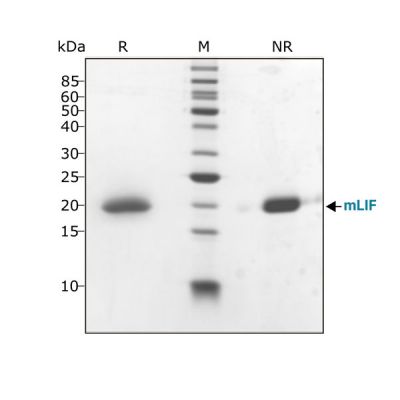
Mouse LIF protein (Qk018) migrates as a single band at 20 kDa in non-reducing (NR) and upon reduction (R) with β-mercaptoethanol.
Purified recombinant mouse LIF protein (3 μg) was resolved using 15% w/v SDS-PAGE in reduced (+β-mercaptoethanol, R) and non-reduced conditions (NR) and stained with Coomassie Brilliant Blue R250. Data from Qk018 lot #104278.
Further quality assays
Mass spectrometry: single species with expected mass
Endotoxin: <0.005 EU/μg protein (below level of detection)
- Recovery from stock vial: >95%
We are a company founded and run by scientists to provide a service and support innovation in stem cell biology and regenerative medicine. All our products are exceptionally high purity, with complete characterisation and bioactivity analysis on every lot.
Protein background
LIF is a pleiotrophic factor that belongs to the IL-6 superfamily of cytokines. Acting through a heterodimeric receptor of LIFR (gp190) and gp130, LIF activates a number of cellular pathways including the JAK/STAT, PI3K and MAPK pathways.2 LIF signalling is essential for maintenance of murine pluripotency.3 Human LIF can be used for the maintenance of mouse embryonic stem cells, however mouse LIF cannot bind to the human receptor, thus rendering mouse LIF inactive on human cells.4
Customer & collaborator data
Flow cytometry analysis of Nanog-reporter positive mouse ES cells cultured using Qk018 mouse LIF vs. ESGRO
Flow cytometry was used to compare the percentage of Nanog-reporter positive mouse ES cells cultured in a chemically-defined, feeder-free iPSC culture media containing either Qk018 mouse LIF or ESGRO. Our results show that Nanog expression in mouse ES cells cultured with Qk018 mouse LIF was comparable to, if not potentially better than, ESGRO.
Experiments performed by Harry Leitch (MA MB BChir PhD MRCPCH), MRC London Institute of Medical Sciences, Imperial College.
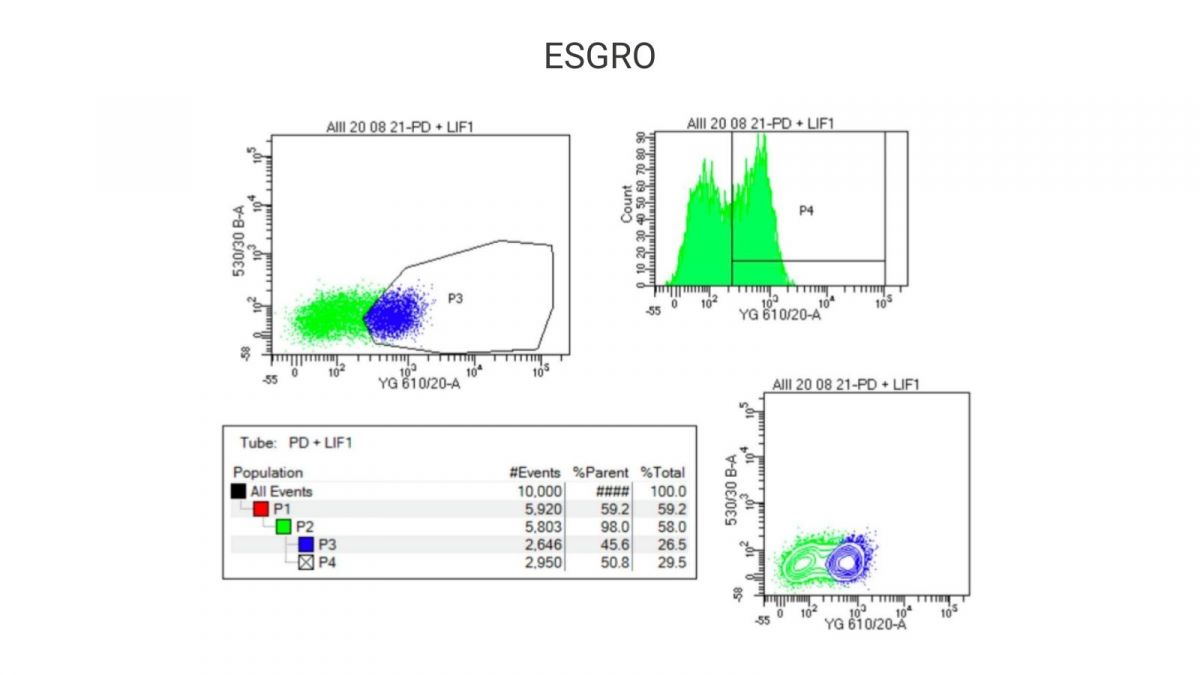
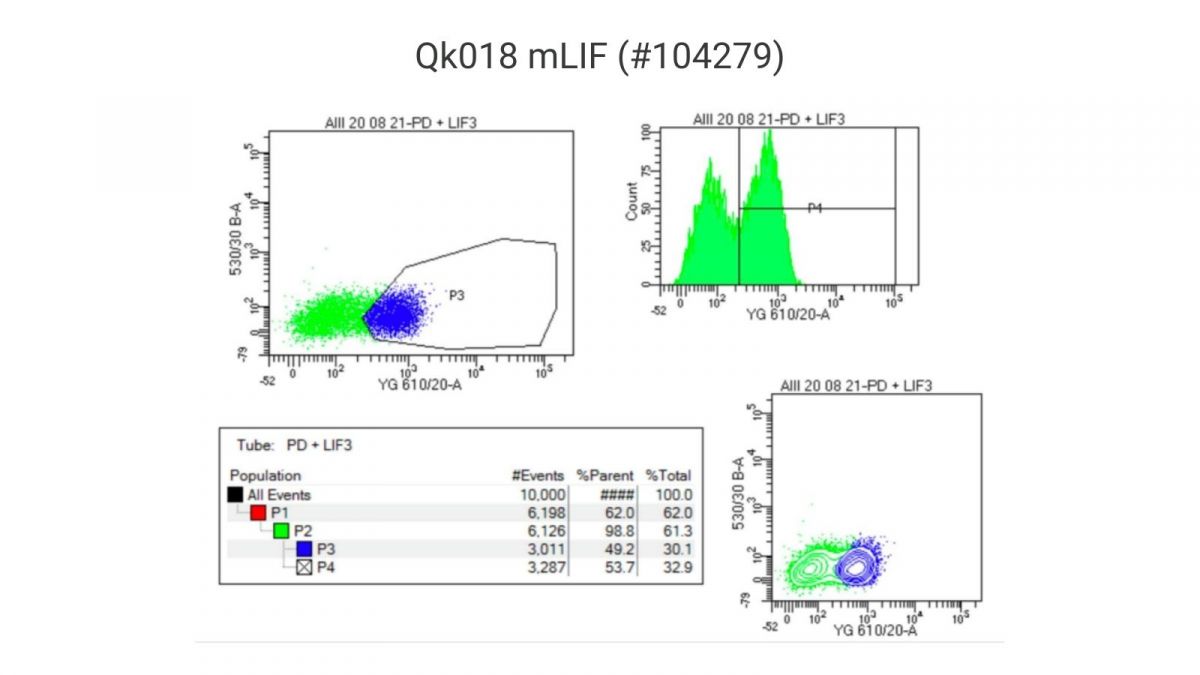
MLIF
The LIF we tested from Qkine has shown excellent quality in maintaining mouse embryonic stem cells derived from precious samples and maintaining them in a pluripotent state.
Experiments conducted by Dylan Liabeuf.
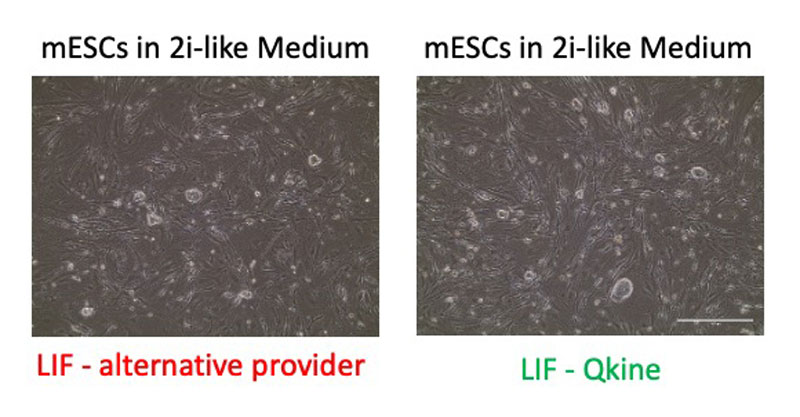
Publications
ScienceDirect. 2024
Protocol for generating mouse morula-like cells resembling 8- to 16-cell stage embryo cells
Authors: Huanhuan Li et al.
Lab: Jose Silva, Guangzhou, China
Cell Rep. Methods 100597 (2023)
CartoCell, a high-content pipeline for 3D image analysis, unveils cell morphology patterns in epithelia.
Authors: Andrés-San Román, J. A. et al.
Lab: Luis M. Escudero, University of Sevilla
Our products are for research use only and not for diagnostic or therapeutic use. Products are not for resale.

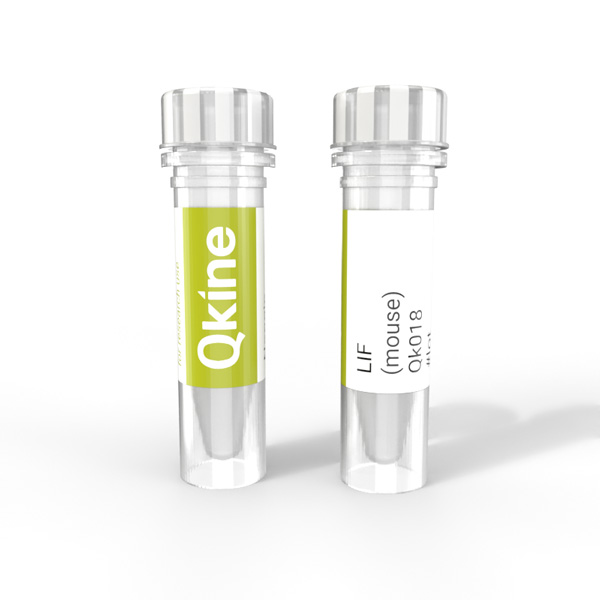
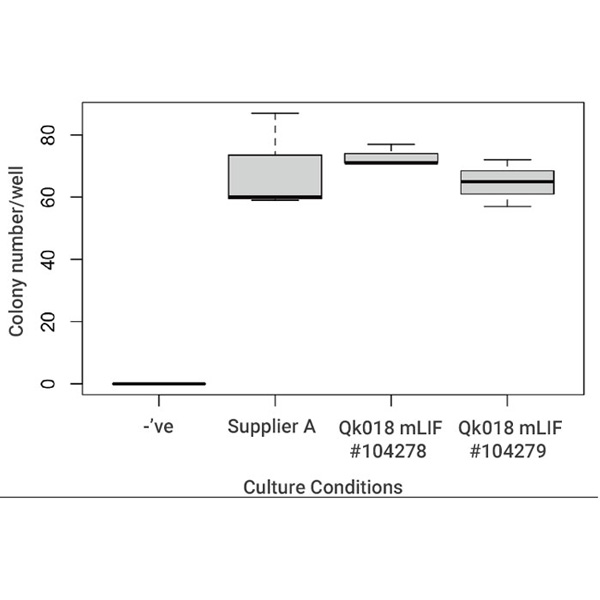
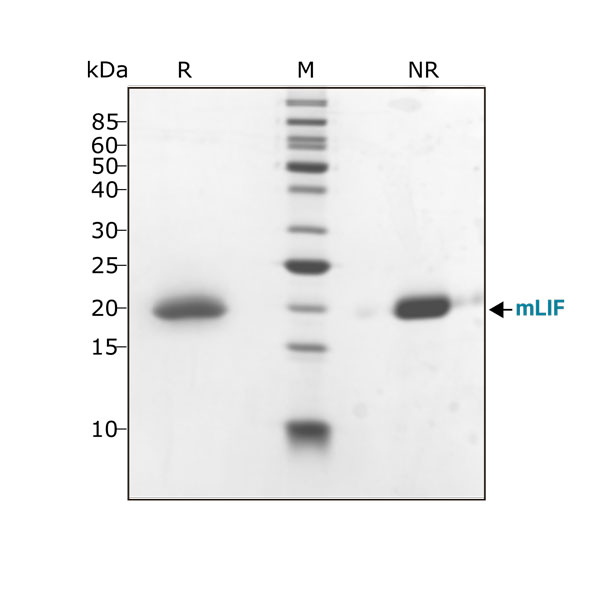
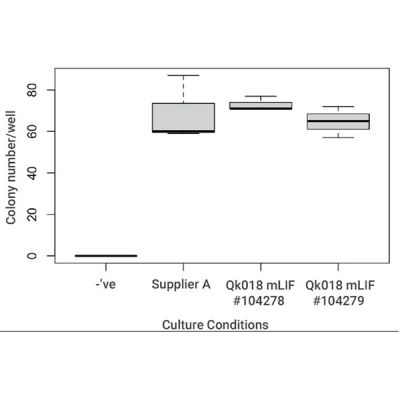

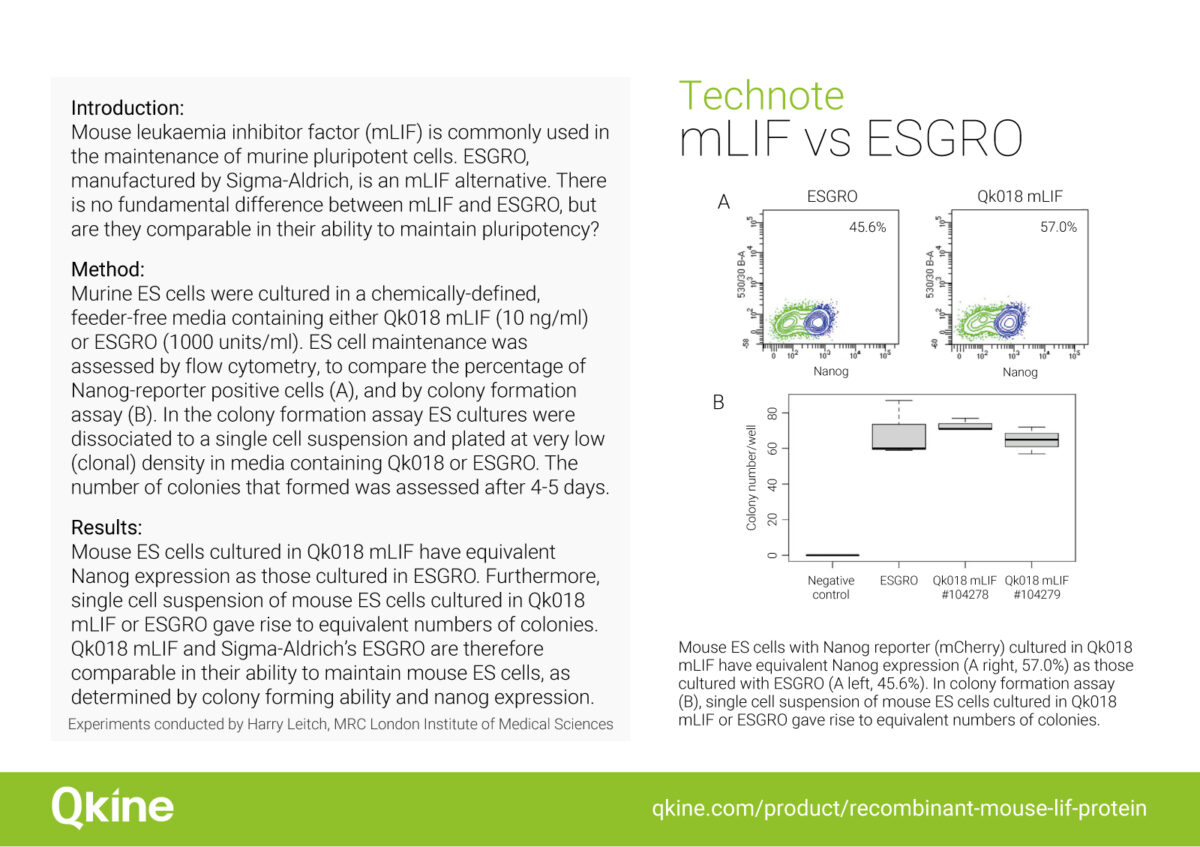

What others are saying
There are no contributions yet.